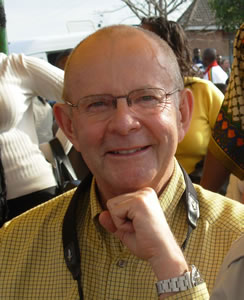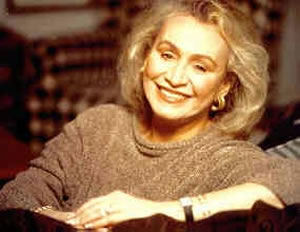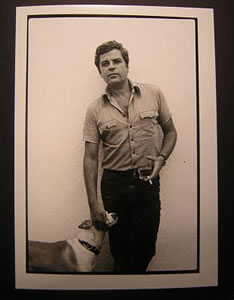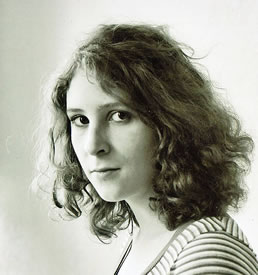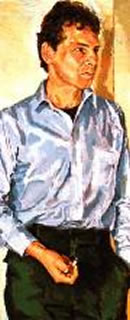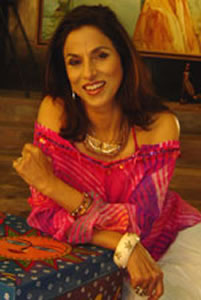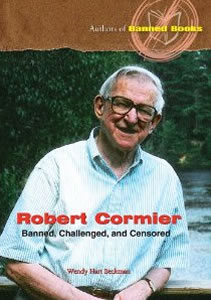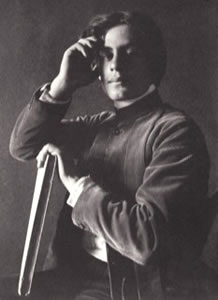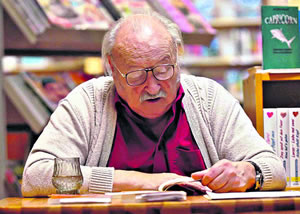De Franse schrijver Pierre Guyotat werd geboren op 9 januari 1940 in Bourg-Argental. Zie ook alle tags voor Pierre Guyotat op dit blog.
Uit: Eden, éden, éden
”Les soldats, casqués, jambes ouvertes, foulent, muscles retenus, les nouveaux-nés emmaillotés dans les châles écarlates, violets : les bébés roulent hors des bras des femmes accroupies sur les tôles mitraillées des G.M.C. ; le chauffeur repousse avec son poing libre une chèvre projetée dans la cabine ; / au col Ferkous, une section du RIMA traverse la piste ; les soldats sautent hors des camions ; ceux du RIMA se couchent sur la caillasse, la tête appuyée contre les pneus criblés de silex, d’épines, dénudent le haut de leur corps ombragé par le garde-boue ; les femmes bercent les bébés contre leurs seins : le mouvement de bercée remue renforcés par la sueur de l’incendie les parfums dont leurs haillons, leurs poils, leurs chairs sont imprégnés : huile, girofle, henné, beurre, indigo, soufre d’antimoine – au bas du Ferkous, sous l’éperon chargé de cèdres calcinés, orge, blé, ruchers, tombes, buvette, école, gaddous, figuiers, mechtas, murets tapissés d’écoulements de cervelle, vergers rubescents, palmiers, dilatés par le feu, éclatent : fleurs, pollen, épis, brins, papiers, étoffes maculées de lait, de merde, de sang, écorces, plumes, soulevés, ondulent, rejetés de brasier à brasier par le vent qui arrache le feu, de terre ; les soldats assoupis se redressent, hument les pans de la bâche, appuient leurs joues marquées de pleurs séchés contre les ridelles surchauffées, frottent leur sexe aux pneus empoussiérés ; creusant leurs joues, salivent sur le bois peint ; ceux des camions, descendus dans un gué sec, coupent des lauriers-roses, le lait des tiges se mêle sur les lames de leurs couteaux au sang des adolescents éventrés par eux contre la paroi centrale de la carrière
d’onyx …“
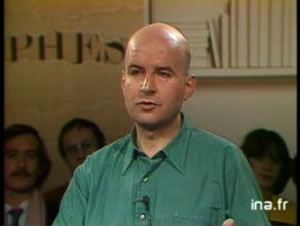
Pierre Guyotat (Bourg-Argental, 9 januari 1940)
In 1984 in het Franse tv-programma „apostophe“

